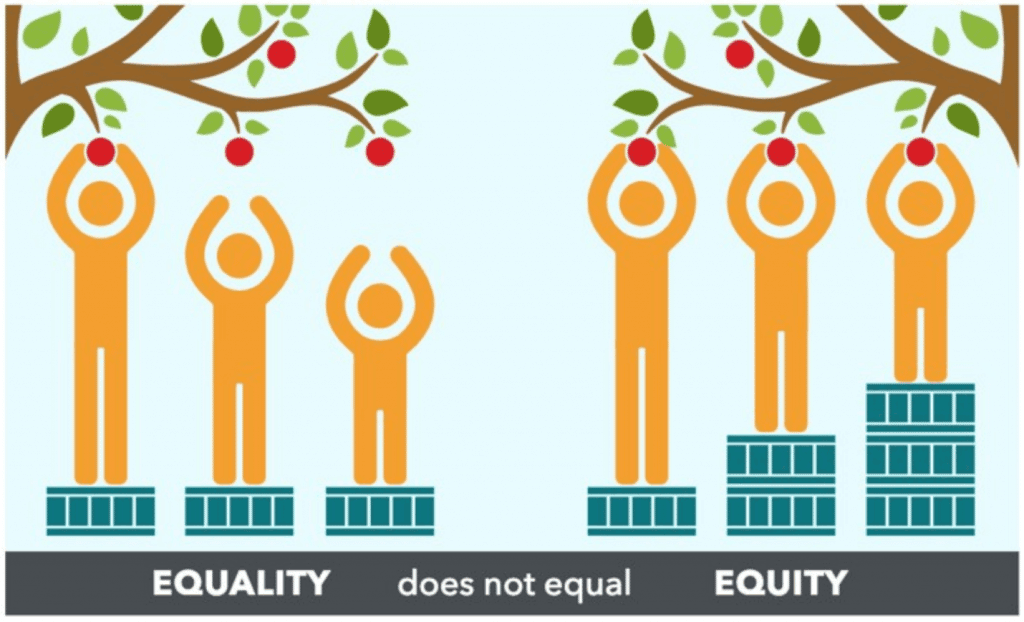2021 and changes ahead
It’s time to lean into a new normal. If ever a year required us to re-think how things have been done, it’s this one. And the renewed reckoning on racial equity in America is most certainly part of that new normal.
We at the DCF have been deeply focused on Covid response work over the past nine months. During this time, we’ve also reflected more deeply on the growing Black Lives Matter movement, and protests and organizing across the nation. We had the chance to welcome Wes Moore and to engage hundreds of Delawareans in discussions about the deep history of racial inequality, and the need that all of us be part of building a society that is inclusive and equitable.

A big part of how we at the DCF are working on these issues starts with what we learned from the Community Equity Project cohort, a group of Delaware leaders – people with experience addressing equity issues – who met for over a year to define a shared vision around racial equity. We are pleased to release the report of recommendations from this cohort, which will help us continue driving important conversations statewide.
Out of that group’s work, there are six commitments the DCF is making now and for the long-term:
• Make racial equity an explicit priority in all the work of the DCF.
• Increase the impact of resources invested in the community that focus on racial equity.
• Encourage civic discourse – spark conversations throughout Delaware on racial equity issues.
• Shine a light on research and data through our communications channels and events.
• Continue to bring together and rely on the expertise of the Community Equity Project cohort to move the work forward and build broader partnerships.
Those five bullets are only the beginning, and only scratch the surface of course. They have led to specific actions. A new board equity committee – chaired by former federal Judge Greg Sleet – is meeting to develop metrics and resources for the work. Our Wes Moore Building Opportunity event is leading to continued community conversation about how and where Delawareans can engage in this work. We will be launching a new grants program focused on organizations led by people of color. We will be working with consultants to review our own practices – organization-wide – to ensure we are implementing the best practices to ensure perspectives of people of color are represented, heard and honored.
It’s also only the beginning of our work. We know that over time, work on racial equity issues will evolve, improve, and change. And we are committed to being in this work for the long haul.
I also want to thank and honor the people who participated in the Community Equity Project cohort, who are helping lead us to these changes. They are: Daniel Atkins, Rosa Colon-Kolacko, Rebecca Cotto, Dorothy Dillard, Kim Graham, Marshala Lee, Shyanne Miller, Michael Minor, Cimone Philpotts, Jaclyn Quinn, Shardae White and Christian Willauer. Read more about them here. A shout-out also to Social Contract, the outstanding consultants who helped design and coordinate the process.
I urge you to take a look at the report. Each section provides important insights and suggestions.
• Developing an Equity Lens describes the cohort’s work to define equity, and to understand and adopt an equity perspective.
• Empowering Communities provides an overview of the centrality of communities in the journey toward equity and offers recommendations for placing communities and their work at the forefront of the equity journey.
• Restructuring for Impact focuses on the organizational changes necessary to transform structures and processes to support and ensure equity.
• Institutionalizing Equity addresses the changes necessary in public awareness and education as well as in policies and law to shift toward equity.
• The Evolution of the Community Equity Project describes the goals, participants and process of the Community Equity Project.
The year ahead is going to be a momentous one. As we begin to ramp out of the pandemic, we need to keep our eyes on the changes we need to pursue. And in our vision of a Delaware that serves all, racial equity simply must be part of the equation.